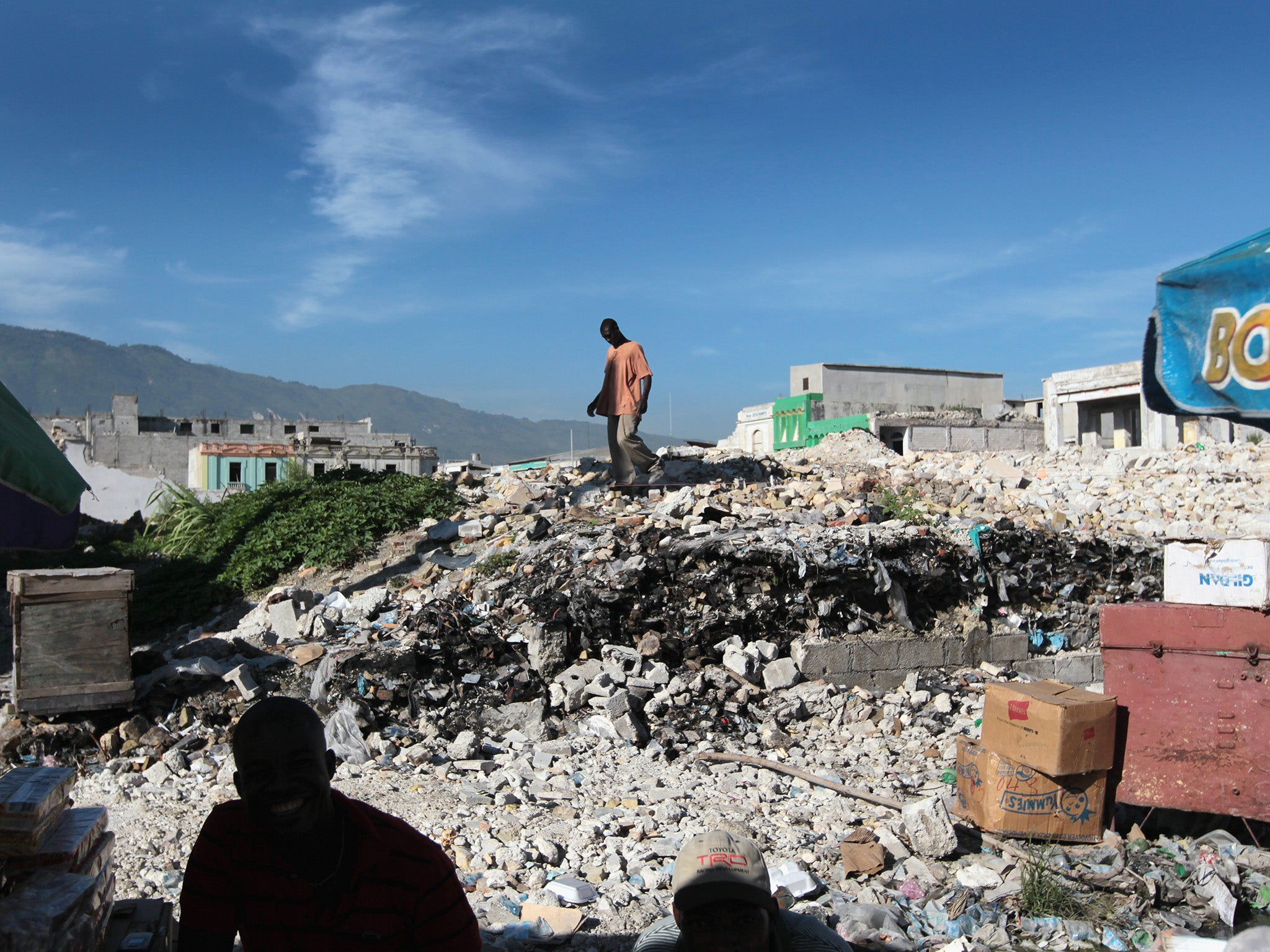Trump administration says 60,000 Haitians who came to US after earthquake must leave
Conditions in Haiti have improved significantly since the 2010 earthquake says the US Homeland Security Department

Your support helps us to tell the story
From reproductive rights to climate change to Big Tech, The Independent is on the ground when the story is developing. Whether it's investigating the financials of Elon Musk's pro-Trump PAC or producing our latest documentary, 'The A Word', which shines a light on the American women fighting for reproductive rights, we know how important it is to parse out the facts from the messaging.
At such a critical moment in US history, we need reporters on the ground. Your donation allows us to keep sending journalists to speak to both sides of the story.
The Independent is trusted by Americans across the entire political spectrum. And unlike many other quality news outlets, we choose not to lock Americans out of our reporting and analysis with paywalls. We believe quality journalism should be available to everyone, paid for by those who can afford it.
Your support makes all the difference.The Trump administration is ending a temporary residency permit program that has allowed almost 60,000 citizens from Haiti to live and work in the United States since a 2010 powerful earthquake shook the Caribbean nation.
The Homeland Security Department says conditions in Haiti have improved significantly, so the benefit will be extended one last time until July 2019 to give Haitians time to prepare to return home.
Advocates and members of Congress from both parties had asked the Trump administration for an 18-month extension of the program, known as Temporary Protected Status. Haitian President Jovenel Moise's government also requested the extension.
Advocates for Haitians say conditions in the island nation haven't improved nearly enough for Haitians to be deported.
While Haiti has made advances spurred by international aid since the quake, the Caribbean nation remains one of the poorest in the world. More than 2.5 million people, roughly a quarter of the population, live on less than $1.23 a day, which authorities there consider extreme poverty.
The United Nations last month ended a peacekeeping mission in Haiti that, at its peak, included more than 10,000 troops. Its new mission is comprised of about 1,300 international civilian police officers and 350 civilians who will help the country try to reform a deeply troubled justice system.
The Homeland Security Department made its announcement 60 days before temporary status for the Haitians is set to expire. In May, the agency extended the program for only six months instead of the customary 18, and urged Haitians under the program to get their affairs in order and prepare to go home.
The temporary status covers some 435,000 people from nine countries ravaged by natural disasters or war, who came to the US legally or otherwise. Days after a 7.0-magnitude earthquake devastated Haiti in January 2010, President Barack Obama granted the 18-month protection status for Haitians in America who would otherwise have to go home. Obama renewed it every time it ran out.
Monday's decision doesn't affect thousands of Haitians who were taken in by Brazil and other South American countries after the earthquake and began making their way to the United States last year.
US Customs and Border Protection says 6,424 Haitians showed up at border crossings with Mexico during the 12-month period ending 30 September, up from only 334 a year earlier. They were generally paroled to live in the US on humanitarian grounds.
Since taking office, Trump has ended temporary permit programs for Sudan and Nicaragua. He postponed until next July a decision on how to deal with a similar program for 86,000 residents from Honduras.
US officials have said conditions in Haiti have significantly improved since the disaster. But advocates for Haitians say a persistent cholera epidemic and damages caused by three hurricanes since 2016 exacerbate the difficulty for returning Haitians.
Maryland Sens. Ben Cardin and Chris Van Hollen, along with fellow Democrat Dianne Feinstein of California, last week unveiled new legislation to protect undocumented immigrants living under temporary protected status. It would make immigrants under the program eligible to apply for legal permanent residency after three years.
Associated Press
Join our commenting forum
Join thought-provoking conversations, follow other Independent readers and see their replies
Comments